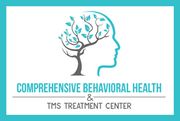What’s the Difference Between Bipolar Disorder and Manic Depression?

While it may seem like bipolar disorder and manic depression are separate conditions, in fact, they are one and the same. Bipolar is the preferred nomenclature by medical professionals, and this disorder is characterized by periods of mania punctuate by episodes of depression. The following explains the different types of Bipolar disorders and how you can get help.
Bipolar I vs. Bipolar II
While there are similarities between the two types, bipolar I is characterized by periods of extreme mania. Conversely, people with bipolar II experience less serious mania, also called hypomania, as well as depressive episodes. These episodes can also occur with bipolar I, but they’re not necessary for a diagnosis to be made. Each facet of the disorder is accompanied by distinct symptoms.
With manic episodes, people often experience a euphoric feeling, delusional thinking, hallucinations, increased energy, and lack of sleep. With depressive episodes, fatigue, fits of crying, sleeping too much, insomnia, lack of interest, and suicidal ideation are also common. In some cases, these symptoms can be debilitating and affect a person’s ability to function. There are also periods of calm where no symptoms occur, and these periods are known as euthymia.
Available Treatments
The first step to getting treatment is to rule out other disorders that have similar symptoms. Once a diagnosis has been made, there are a few options available. Certain medications are beneficial for controlling symptoms. This includes mood stabilizers, such as lithium or anticonvulsants. If a person experiences delusions or hallucinations, antipsychotic medication may also be prescribed.
 Therapy is also beneficial in terms of treatment. Bipolar can have an impact on daily life and interpersonal relationships, and it’s important for a person to develop coping mechanisms to combat these effects. Family members are also encouraged to attend therapy, which can help them understand this disorder and their loved one’s behavior. Because bipolar can affect people differently, treatment plans will be based on the individual.
Therapy is also beneficial in terms of treatment. Bipolar can have an impact on daily life and interpersonal relationships, and it’s important for a person to develop coping mechanisms to combat these effects. Family members are also encouraged to attend therapy, which can help them understand this disorder and their loved one’s behavior. Because bipolar can affect people differently, treatment plans will be based on the individual.
Managing a disorder like bipolar can be difficult to do on your own. In Staunton, VA, Comprehensive Behavioral Health is here to support people by offering treatments based on the latest advances and treatment. They can provide medications to help manage symptoms, but also utilize advanced treatments such as Neruostar® TMS Therapy, which uses electromagnetic fields to stimulate the brain and decrease symptoms of depression. If you’d like to schedule an appointment, feel free to call (540) 688-2646 today. You can also visit them online for more helpful patient information.
About the Business
Have a question? Ask the experts!
Send your question

